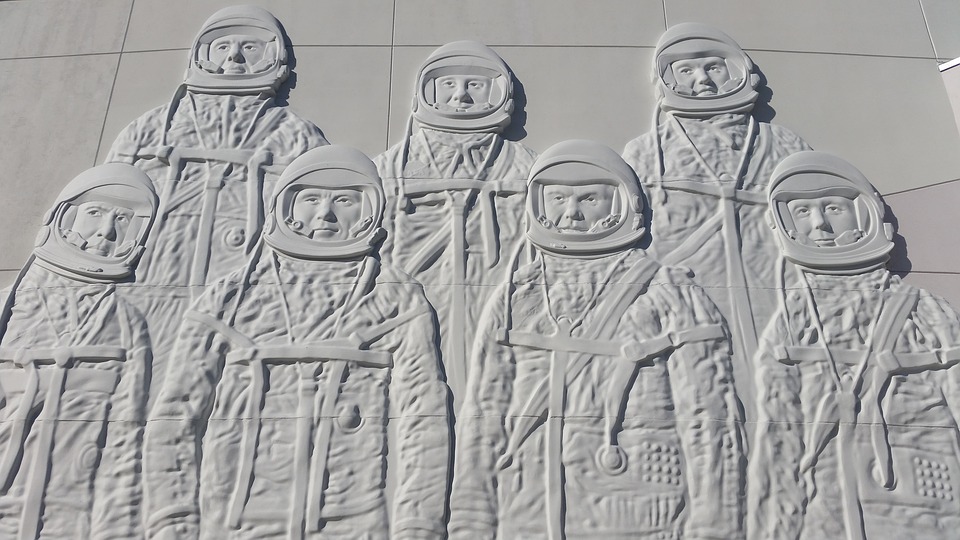I spent a few hours at the Kennedy Space Center recently. In the course of the tour there were at least three times that I saw footage of President John F. Kennedy’s 1962 speech urging Americans to work together to reach the moon. In the clip Kennedy talks about the need for US leadership and our collective willingness to take on hard tasks.
The third time I heard the speech—when it was coupled with a dramatization of engineering challenges NASA scientists overcame during the space program—I started thinking about climate change.
What if US leaders talked about the challenge of climate change in the way that Kennedy talked about going to the moon?
In 1962 most folks didn’t think it was plausible to reach the moon within a decade. Likely it sounded really hard and really expensive—a kind of fool’s errand. Indeed, skeptics mocked the idea, much like skeptics today mock current proposals to cut greenhouse gas emissions 80% in a dozen years. A lot has changed in fifty years but skeptics are still skeptics. Still, fifty years ago the visionaries prevailed—we invested in a space program and safely got humans to the moon and back within a decade.
“We used to be able to think big. Let’s do it again,” Eugene Robinson wrote recently in the Washington Post, in reference to the Green New Deal. When I went back to his piece this week I was not entirely surprised to see that he referenced the space program too. It’s important to remember though, that in 1962 nobody knew how to get to the moon—engineers and scientists had to invent solutions. By contrast, in 2019 we know how to reduce emissions and we can see places where it’s already happening successfully—so it’s more a challenge of public will than know-how.
In Kennedy’s speech he noted that Americans can lead or we can follow. On climate we’ve largely abdicated a leadership role; Europe and China are leading.
At the Kennedy Space Center there’s a really strong patriotic vibe. Walking around the exhibits I watched folks marvel at our past accomplishments—the ingenuity that led to cell phone technology and other 21st century necessities.
Maybe that’s why, listening to Kennedy that third time, I started to feel sad, wondering what had happened to our collective moxie. Fifty years ago we committed to big goals without knowing how we’d achieve them. Fifty years ago we had confidence that we could overcome unprecedented challenges because we were Americans and that’s just what we did.
What happened to our shared self-confidence? Climate change is easily the greatest challenge of our generation so where’s our can-do spirit? The problem isn’t climate skeptics—they are a distinct minority. Recent polls indicate that seven in ten Americans are concerned about climate change and that eight in ten voters support the policies outlined in the Green New Deal. Collectively we mostly agree that climate change is an issue and that we need to act.
So where’s the commitment? I’m struck that the advantage Kennedy had in 1962 was one of scope: getting humans to the moon and back required hard work and ingenuity from a talented group at NASA. Getting to the moon didn’t require engaging all Americans, transforming buildings and transportation systems, or ending our dependence on fossil fuels. In 1962 Kennedy asked all Americans to support the space effort but he didn’t suggest they would need to live differently. We delegated the hard part of the moonshot to scientists and waited for their technological solution.
And there’s the crux of the issue: climate change is hard because there is no magical technology. Climate change requires a myriad of solutions that affect our daily lives—which means it’s personal (and potentially inconvenient). We can’t delegate the problem to a group of scientists because we are the problem—and the solution.
Definitely it’s the case that sustainable practices—reducing energy use in buildings, adopting more active modes of transport, reducing waste—impacts one’s life in positive ways. Facilitating these solutions makes communities stronger. Achieving deep decarbonization means cleaner air and water as well as better physical fitness (because we walk and bike more). If we pursue a vision like the one outlined in the Green New Deal, where the inequities of our fossil fuel economy are also addressed, we’ll have greater shared prosperity as well.
We’ve agreed that action is necessary. Now we just need the moxie to commit that we will reduce emissions and address climate change. Already thousands of businesses, communities and faith groups across the US, representing more than 150 million people, have committed. Isn’t it time you joined us?
Fifty years from now there might well be a museum that documents our response to climate change. I hope the story it tells is as inspiring as the Kennedy Space Station’s story. But of course that depends on us, doesn’t it?
Comments are closed.





